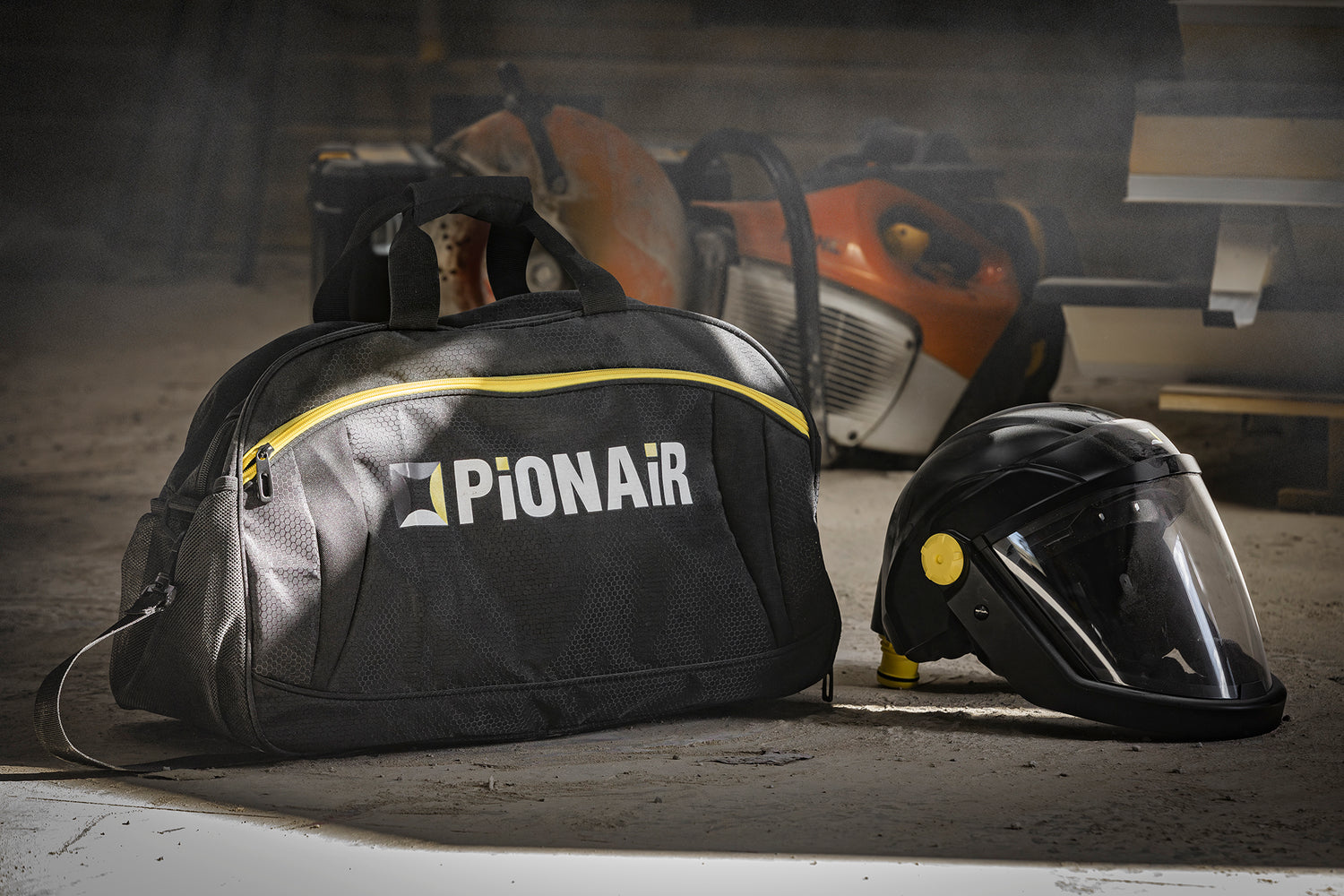General FAQs
Powered Air-Purifying Respirator.
A PAPR draws in ambient air through a high-efficiency filter and delivers it to the wearer as clean, breathable air—making protection easier, safer, and more comfortable.
Because real life doesn’t always come clean-shaven.
PAPRs are a smarter alternative to tight-fitting respirators. They eliminate the need for face fit testing and offer consistent, positive airflow—helping users breathe easier on the job. PiONAiR's loose-fitting systems are also facial-hair friendly, lightweight, and compatible with hard hats and other PPE.
No. Our systems are loose-fitting, so there’s no need for costly, time-consuming fit testing. That also means no clean-shaven policy, and no worries about facial hair, head coverings, or skin conditions.
Positive pressure respirators (like PiONAiR) maintain a constant flow of clean air into the headtop, creating a protective barrier that keeps harmful particles out.
Negative pressure masks rely on the wearer’s breath to draw air in—meaning a tight seal is essential, and breathing resistance is higher.
It depends on your work.
Think about:
- The type of airborne hazards you’re exposed to
- The comfort level you need for long shifts
- Additional protection for eyes, face, or head
Our team can help match you with the best setup for your job.
APF is the rating that tells you how well a respirator protects you.
An APF of 40 (like PiONAiR’s) means you’re getting twice the protection of an FFP3 mask (which is APF 20). Higher APF = better defence against harmful particles like silica dust.
MUC is the highest level of a hazardous substance a worker can be exposed to while still being protected by a respirator. It’s calculated by multiplying the APF by the legal exposure limit for that substance.
Example:
If a respirator has an APF of 40 and the exposure limit is 1 mg/m³, the MUC is 40 mg/m³.
If unopened and stored properly, HEPA filters typically last up to 5 years from manufacture.
Once opened—even if unused—they should be replaced within 6 months, as they start absorbing particles from the environment.
Health & Safety FAQs
Because it’s invisible—and deadly.
Silica dust comes from cutting or grinding materials like concrete and stone. Once it’s in your lungs, it stays there, scarring tissue and increasing the risk of lung cancer and other chronic diseases.
The HSE now ranks it as the biggest risk to construction workers after asbestos.
Tight-fitting masks rely on a perfect seal. Facial hair breaks that seal.
That’s a problem—because 69% of men aged 18–39 have facial hair. And clean-shaven policies? They’re hard to enforce, uncomfortable, and potentially discriminatory.
That’s why PiONAiR systems are loose-fitting and facial-hair friendly—no need to shave to stay safe.
It’s costly. It’s time-consuming. And it doesn’t solve the facial hair issue.
Plus, a face fit test done today doesn’t guarantee the mask still fits next week—or after six months. Our solution? Ditch the test entirely. PiONAiR products don’t need one.
Simple: APF 40 vs. APF 20.
That means twice the protection of an FFP3 disposable. And with a continuous flow of clean air, breathing is easier, even during tough shifts.
Yes—fully.
Our systems meet the EN12941:2023 TH3 standard, one of the highest available for powered respiratory protection. That means tested, trusted performance in real-world conditions.

Got Another Question?
Drop us a message today via our contact form and we'll answer it as soon as possible.



